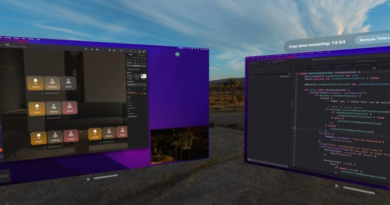Meta reports 11% revenue growth, but the metaverse still suffers
Meta had one of its best quarters since before it changed its name from Facebook. The company reported 11% year-over-year revenue growth, which is a sigh of relief for investors, because this time last year, Mark Zuckerberg’s company posted its first-ever quarterly revenue decline. Meta’s stock price reflects this — while the stock took a nose dive through 2022, it’s now climbing back up again, trading at around $298 per share after markets closed today.
Part of why Meta is making more money is because it’s laid off more than 20,000 employees, which makes personnel costs much lower. Though this correction for over-hiring has serious implications for those who lost their jobs, investors seem to be pleased. Meta calls this downsizing “The Year of Efficiency,” which is a much more palatable way to say “mass layoffs” on an earnings call.
The revenue growth isn’t just a result of lower costs, though. Zuckerberg says that Reels have hit 200 billion daily plays across Instagram and Facebook, and its monetization revenue run rate has increased to more than $10 billion, up from $3 billion in the fall. And though Meta hasn’t started monetizing Threads yet, the new competitor to Twitter (or are we saying X now?) is off to a solid start, according to Zuckerberg.
Though much at Meta is looking up, Reality Labs continues to struggle. Meta’s VR and AR products brought in just $276 million, while Reality Labs lost $3.7 billion this quarter. Across all of 2022, Reality Labs lost Meta $13.7 billion.
Meta CFO Susan Li writes in the Q2 2023 earnings report that the company anticipates Reality Labs’ operating losses to get even larger. But the general public still seems uninterested in Meta’s vision for a metaverse. Apple also entered the AR/VR ring this quarter, announcing its $3,499 Vision Pro AR headset. This long-awaited product is not quite within financial reach for the average consumer, but Meta is gearing up for the fall, when it will compete with Apple and release its Quest 3 headset. The Quest 3, a mixed reality headset, will retail for $499. That’s not chump change, but it’s a lot more accessible than $3,499.
Despite Reality Labs’ massive costs, Zuckerberg remains optimistic (at least when speaking publicly with investors, who remain skeptical that these investments will pay off).
“We’re here to build awesome experiences that help people connect,” he said. “I think helping to shape the next platform is going to unlock that in a profound way for decades to come.”
It’s reminiscent of early last year, when he unabashedly told investors that even though Reality Labs is bleeding money, the 2030s will be exciting.
“I can’t guarantee you that I will be right about this, but I do think this is the direction that the world is going in,” Zuckerberg said.




